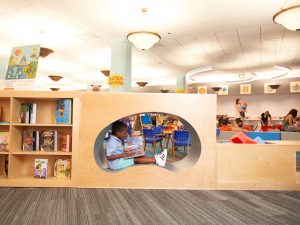
Early childhood plays a pivotal role in brain development, crucial for cognition and mental well-being. Socioeconomic status significantly influences brain health, with higher income linked to better cognitive skills and brain structure. However, a study suggests that reading for pleasure in early childhood can mitigate some negative effects of poverty on the brain. This finding is based on an analysis of data from the Adolescent Brain and Cognitive Development project, involving over 10,000 participants. Remarkably, reading for pleasure correlates with improved cognition, mental health, and educational achievement in adolescence, regardless of socioeconomic status. It’s a simple yet powerful intervention that could level the playing field for children from disadvantaged backgrounds. This highlights the importance of equal opportunities in early childhood for fostering healthy brain development.
Language learning through reading serves as a foundational element in healthy brain development, enhancing various cognitive functions. Promoting reading for pleasure emerges as a powerful strategy to counteract the impacts of poverty on brain health, offering hope for better outcomes. Further research is warranted to delve deeper into poverty’s influence on brain development and to identify additional interventions to support vulnerable children.
Despite the multifaceted nature of poverty’s impact on brain development, reading offers a straightforward avenue for improvement. Language learning through reading is crucial for brain development and enhances various cognitive functions. The study underscores the need for comprehensive approaches to address the effects of poverty on brain health. Promoting reading for pleasure could serve as a vital strategy in this endeavor, potentially mitigating the long-term consequences of socioeconomic disparities. Further research is necessary to deepen our understanding of poverty’s influence on brain development and to identify additional interventions to support vulnerable children.
To dig into this captivating article click here
Jasleen Kaur, UConn KIDS Research Assistant